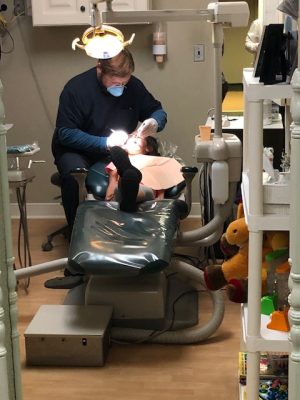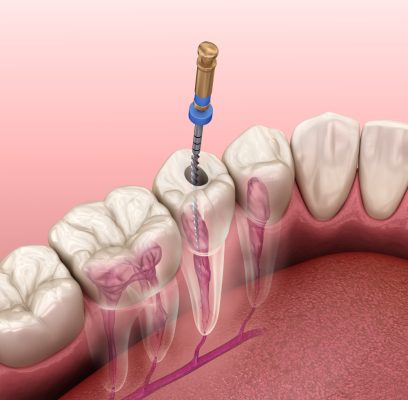Understanding Root Canal Therapy: A Vital Treatment for Dental Health
At Glenwood Dental Associates, we prioritize your comfort and oral health. Whether you live in Smyrna or nearby areas like Dover, Clayton, and Kenton, our dental team is here to guide you through the process of understanding when you might need root canal therapy. This procedure, often misunderstood, can provide much-needed relief from tooth pain and protect your dental health.
Root canal therapy is typically needed when the pulp inside a tooth becomes inflamed or infected due to decay, cracks, or injury. However, it’s essential to recognize the warning signs early to avoid further complications. Here, we discuss common indicators that you may need this treatment and how it can help restore your dental well-being.
Do you require root canal treatment to get your oral health back on track? Call our general dentist in Smyrna at (302) 653-5011 today!
Why Choose Glenwood Dental Associates for Root Canal Therapy
At Glenwood Dental Associates in Smyrna, DE, we pride ourselves on patient-focused care. Our practice combines the latest dental technology with compassionate treatment to make sure you are comfortable and confident during your visit. With Dr. Brian Wisk’s expertise and a team of dedicated dental hygienists, we aim to deliver top-tier dental care.
We understand that choosing the right dental provider can make all the difference. Whether you need a routine check-up or more specialized treatment, our goal is to support your oral health and help you maintain a beautiful, healthy smile.
Signs You Need a Root Canal
Persistent Tooth Pain
The most common sign that you may need root canal therapy is ongoing tooth pain. This pain often feels sharp, throbbing, or constant, particularly when you bite down or apply pressure. It can also radiate to the surrounding areas, such as your jaw, ear, or neck. Ignoring this type of pain can lead to severe discomfort and complications. If you’re in Smyrna or nearby communities and notice persistent pain, schedule a dental checkup at Glenwood Dental Associates as soon as possible.
Sensitivity to Temperature
Experiencing intense pain or discomfort when eating hot or cold foods can indicate that the nerves inside your tooth are affected. This heightened sensitivity may not be brief and can persist for minutes after exposure to temperature changes. If your tooth sensitivity continues or becomes more severe, it’s best to seek a professional dental evaluation to determine the need for root canal therapy.
Swollen or Tender Gums
If you see swelling or tenderness around a specific tooth, this could mean an abscess is forming. This type of infection can create a pus-filled pocket at the tooth’s base, causing pain and swelling that may spread to other parts of the mouth. Sometimes, this is accompanied by a bad taste in the mouth or bad breath. The swelling and tenderness can indicate a need for treatment to prevent further spread and complications.
Tooth Discoloration
A tooth that has changed color, appearing darker or grayish, often signals that the pulp inside has been damaged or infected. This discoloration can be accompanied by other symptoms, such as pain or swelling. If you observe these changes, don’t hesitate to reach out to our team at Glenwood Dental Associates in Smyrna. Early diagnosis and treatment can help protect the tooth from further damage.
Chipped or Cracked Tooth
Cracks and chips can expose the tooth pulp to bacteria, leading to infection. If you experience pain, sensitivity, or any discomfort related to a cracked or chipped tooth, immediate consultation is recommended. It’s vital to address these issues quickly to prevent further complications and potential tooth loss.
Pimple on the Gums
A small pimple-like bump, known as a dental abscess or fistula, can be a warning sign of an infection in the tooth. This can drain pus and create an unpleasant taste in your mouth. If you notice this symptom, it’s a clear indicator that your tooth may need a root canal to clear the infection and protect the surrounding tissues.
Eating and Biting Issues
Pain when you eat or touch a tooth could indicate severe tooth decay or nerve damage, which may need to be treated with a root canal. The pain may persist over time and not go away when you stop eating. If you have trouble doing normal activities such as drinking or eating without feeling pain, you should see your dentist as soon as you can.
Risk Factors for Tooth Infection
Several factors can increase your risk of needing a root canal. While tooth infections can affect anyone, certain habits and conditions make some people more susceptible:
- Poor Oral Hygiene: Neglecting regular brushing and flossing allows plaque and bacteria to build up, which can eventually lead to tooth decay and infection.
- Tooth Trauma: Accidents or injuries that result in a cracked or broken tooth can expose the pulp and increase the risk of infection.
- Deep Cavities: When cavities are left untreated, they can progress and reach the pulp, resulting in pain and requiring more invasive treatment.
- Multiple Dental Procedures: Teeth that have undergone multiple procedures, such as fillings or crowns, may be more prone to damage or infection.
How Root Canal Treatment Works
When you come to Glenwood Dental Associates with signs of a tooth infection, Dr. Brian Wisk will conduct a comprehensive examination to determine if root canal therapy is necessary. The process involves the following steps:
Diagnosis: We use advanced diagnostic tools to assess the health of the tooth and surrounding areas.
- Anesthesia: The treatment area is numbed to ensure comfort during the procedure.
- Access Opening: A small opening is made in the tooth to reach the pulp.
- Cleaning and Shaping: The infected or damaged pulp is removed, and the canal is cleaned and shaped.
- Filling: The empty canal is filled with a biocompatible material to seal it off.
- Sealing and Restoration: The tooth is sealed, and a crown or filling may be placed to restore its function and appearance.
The result is a saved tooth that remains functional for years to come. Call our Smyrna dental office at (302) 653-5011 to schedule your root canal therapy.
Frequently Asked Questions
If an infected tooth is left untreated, the infection can spread to surrounding teeth and even the jawbone. This can lead to severe pain, abscess formation, and potential tooth loss. Delaying treatment can also result in the need for more extensive procedures or extractions.
The signs to look for include persistent tooth pain, sensitivity to temperature, gum swelling, tooth discoloration, or a small pimple on the gums. If you experience any of these symptoms, it’s essential to seek dental care as soon as possible.
Thanks to modern anesthesia and pain management techniques, root canal therapy is often no more painful than getting a filling. Most patients report that the procedure helps relieve the pain they were experiencing before treatment.
Recovery time varies but usually takes a few days. Over-the-counter painkillers are often enough to manage any discomfort. Follow-up visits may be required to ensure proper healing and that the tooth has been properly restored.
You should wait until the anesthesia wears off before eating to avoid accidentally biting your cheek or lip. Once the numbing subsides, it’s usually safe to eat soft foods. Your dentist will give you specific instructions for post-treatment care.
Schedule Your Root Canal Consultation Today!
If you’re experiencing any signs that you may need a root canal, don’t wait for the pain to worsen. Contact Glenwood Dental Associates at (302) 653-5011 and schedule an appointment today. Our caring dental team in Smyrna, DE, is ready to help you restore your dental health and keep your smile bright.
Residents of Dover, Clayton, and Kenton are also welcome to experience our compassionate and expert dental care. Your oral health matters to us—reach out today to get the treatment you need!


 Diagnosis
Diagnosis